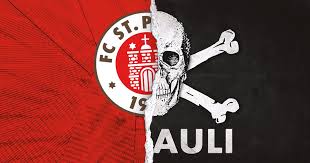As St. Pauli FC carved out its niche in the football world, the club developed a distinct identity that set it apart from other teams. This identity is characterized by its values, culture, and the deep connection it nurtures with its supporters.
Anti-Fascism and Social Activism St. Pauli FC
One of the defining features of St. Pauli FC is its unwavering commitment to social activism. The club has long been associated with anti-fascism and left-wing politics, standing firmly against discrimination, racism, and xenophobia 789win.
This stance became particularly pronounced during the late 1980s and into the 1990s, as fans began to mobilize around social issues. The “Kultur für alle” (Culture for All) campaign emerged, emphasizing accessibility and inclusivity in the face of rising right-wing sentiments across Europe. Through various initiatives and events, the club created a platform for marginalized voices, advocating for acceptance and understanding within the football community.
The incorporation of messages against racism and intolerance extends beyond mere slogans; they manifest in actions taken by fans and the club alike. St. Pauli supporters have consistently organized demonstrations and campaigns that align with their values, showcasing the powerful relationship between the team and its fanbase.
The Skull and Crossbones Symbolism
The iconic skull and crossbones logo, prominently displayed on club merchandise and paraphernalia, epitomizes the rebellious spirit of St. Pauli FC. This emblem is emblematic of the club’s roots in the port district of St. Pauli and reflects its association with maritime culture.
Beyond its nautical connections, the skull and crossbones have become a symbol of resistance against conformity. It represents the fight against oppression, serving as a reminder of the club’s commitment to challenge the status quo. This distinctive branding has resonated deeply with fans, who proudly don the emblem as a badge of honor, reinforcing their identity as part of a broader movement.
The adoption of such an emblematic logo has also bolstered the club’s appeal internationally. Fans from all corners of the globe are drawn to the unique narrative of St. Pauli, embracing the anti-establishment sentiments it represents. This global following has transformed the club into a cultural beacon, uniting individuals who share similar ideals and passions.
Community Engagement and Local Culture
St. Pauli FC’s relationship with its local community is central to its identity. The club embraces its surroundings, actively participating in community initiatives that promote social welfare and engagement. Various partnerships with local organizations underscore the club’s commitment to fostering positive change.
Fan-run initiatives often collaborate with the club to create awareness about pressing social issues, such as homelessness, mental health, and inclusivity. During matchdays, fans gather not only to support their team but also to engage with one another, celebrate diversity, and promote solidarity. This sense of belonging fosters a strong community spirit that permeates every aspect of the club’s existence.
Moreover, the club has also dedicated efforts towards sustainability, understanding the environmental responsibilities that come with modern-day sports. They have implemented eco-friendly practices at the stadium and prioritized sustainable partnerships, demonstrating that their influence extends far beyond the pitch.
The palpable connection between St. Pauli FC and its local culture is reflected in the club’s matchday experience. The stadium becomes a melting pot of music, art, and social discourse, attracting individuals from all walks of life who share a common love for the game and its underlying values.
